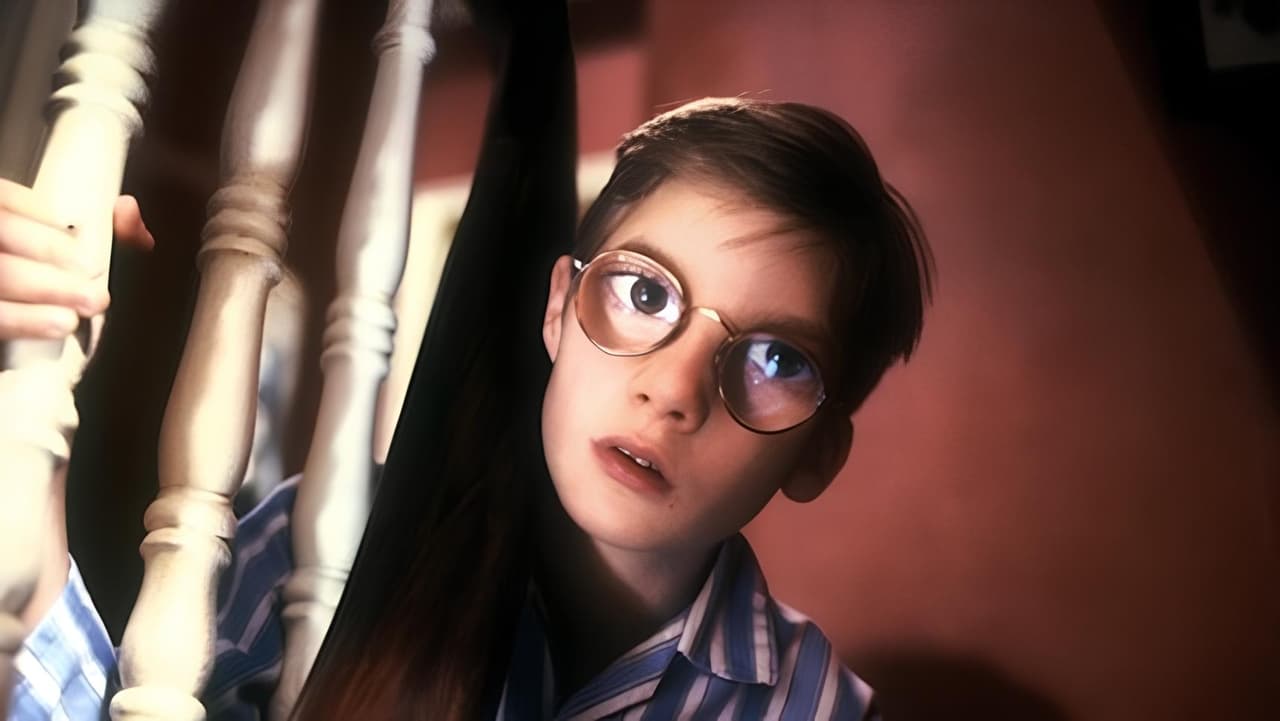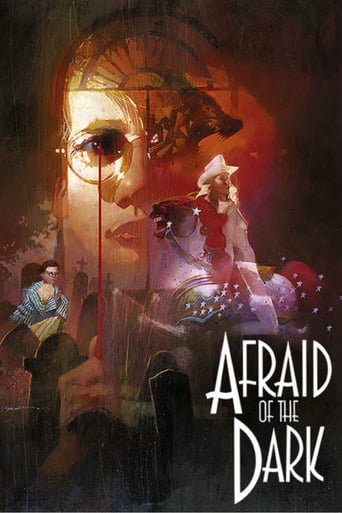

This psychological thriller limps along, but has enough substance to hold your interest. Lucas Hardy(Ben Keyworth)is a 12 year old boy that has disintegrating eyesight and must come to grips with the fact he may become totally blind like his mother Miriam(Fanny Ardant). Lucas overhears his policeman father(James Fox)as he brings home the news of a blind woman having her face slashed by an attacker during broad daylight. There is more than usual concern since the woman comes to the London eye clinic for the blind, where Miriam works. Since Lucas is on school vacation, he decides to open his own search for the blade wielding attacker, who has victimized another woman from the clinic. Have patience for you're sometimes watching through the failing eyes of a paranoid boy's concern for his mother. The cast includes: Paul McGann, Robert Stephens, Susan Wooldridge and most impressive Clare Holman.
... View MoreSome viewers may be a little confused by parts of this psychological adventure, but remember that the point of view in the film is that of a small boy who is himself confused and fearful. The tension between illusion and reality is sometimes tenuous.The strongest element in this spooky thriller is its slow-paced atmosphere. It is a quiet film exploring the confused perspective of a boy slowly going blind. Visuals are almost everything here. Abundant close-ups of the boy and the things he sees with his large, fading eyes act as visual hieroglyphs while the child moves slowly through a bizarre series of events both imagined and real. The well-chosen title says it all metaphorically.
... View MoreI asked myself what kind of comments I could make on this movie without having them contain spoilers. It is a challenge and the following paragraph is what I could come up with.This movie is a thriller, but don't expect a thrill a minute. It has an austere feel, with even pacing punctuated by moments of horror. There are scenes that made me wince, scenes that I found repugnant, and a couple of scenes that made me gasp. But, as with most movies in this genre, the tension builds in anticipation of the intense scenes; the music aids in creating this tension. The action is seen primarily through the eyes and imagination of eleven-year-old Lucas (Ben Keyworth) who is rather withdrawn and reactive. How you respond to the one major plot twist will determine whether you think this is an interesting movie, or whether you think it is confusing with enough improbabilities and plot holes only to irritate.**Spoilers here** The revelation mid-way that what we have seen are dreams or hallucinations that Lucas has been having in response to his potentially going blind give meaning to the title beyond what one initially thinks. I knew only what I had read in Maltin's book before seeing the movie, but the mid-story revelation was not a total surprise, since we had been living in an unreal world until then. There were never any indications of normal life going on - an unreal world where no cars were on what should have been busy streets, and no people to be seen but those directly involved in the scene at hand. Lucas transforms his fear of the surgeon's scalpel into the razor of a serial slasher praying on blind people. His mother is blind (signifying her inattention to Lucas' agony?) and his father is a policeman who is unable to locate the slasher (signifying his impotence to deal with Lucas' problem?) In the final episode of this first-half mad sequence Lucas tracks the slasher down and kills him in a symbolic attempt to exorcise the eye surgeon from his life.After that catharsis we supposedly return to the real world, but things get a little confusing then. We come to feel that not only has Lucas been driven to fantasy by his fear and anxiety but perhaps he has also been driven a bit mad. Children can certainly respond in exaggerated and irrational ways to perceived threats (well, adults can too), so I could believe the first half as that kind of reaction, but in the second half, when Lucas hallucinates in real time, I began to question his sanity. I suppose fear and anxiety can drive one to madness, but the way Lucas would drift in and out of reality (usually being in when he had his glasses on and out when not) struck me as borderline schizophrenia and I believe that that is a more organic disorder than a response to fear and anxiety. But, in the final scene, after the operation, Lucas seems to have returned to normal, even questioning if he had killed the neighbor's dog. So, go figure.If there is a message to be taken from this it is that people should try to be a little more in tune with what is going on in the minds of others. We are inclined to put a smiley face on situations where there is clearly something bad going on. It is clear that Lucas is having some serious problems, but his parents are more than happy to take him at his word when he says that things are just fine, even when they can sense at some deep level that that is not the case.
... View MoreSome people may be put off by this film's unconventional plotting and exposition -- their loss. The director does an excellent job of portraying the degenerating mental and emotional state of a little boy who is losing his vision (and his status as the only child of his parents). As befits the depiction of the interior life of a child, there is very little by the way of explanation or analysis -- everything the boy sees or thinks he sees is treated as real and we're left to figure it out and assign meaning to it. Would that more movies had this much confidence in their subject matter and their audience. This is a horror movie in the best sense of the word, exploring the terrors and tragedies of real-life experiences as only film can.
... View More